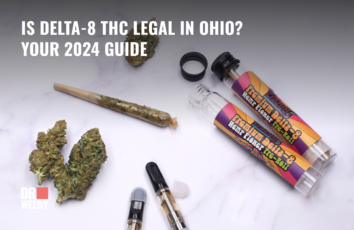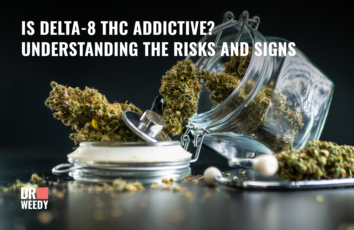What is Delta-8 THC: Facts, Expectations, Benefits, and Uses
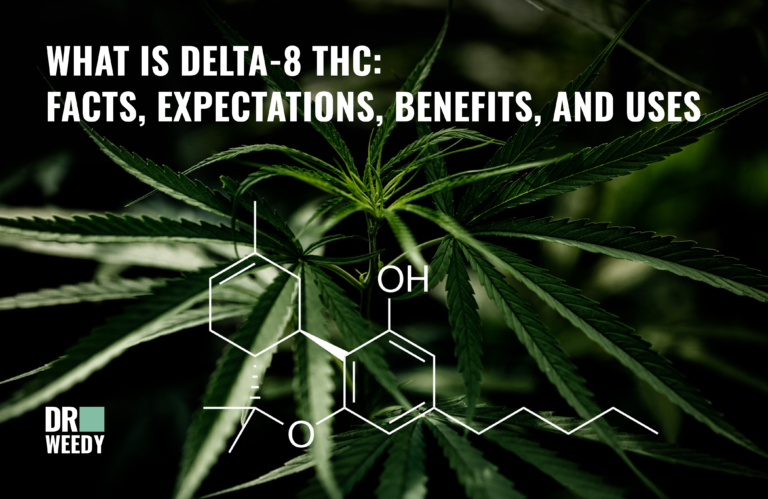
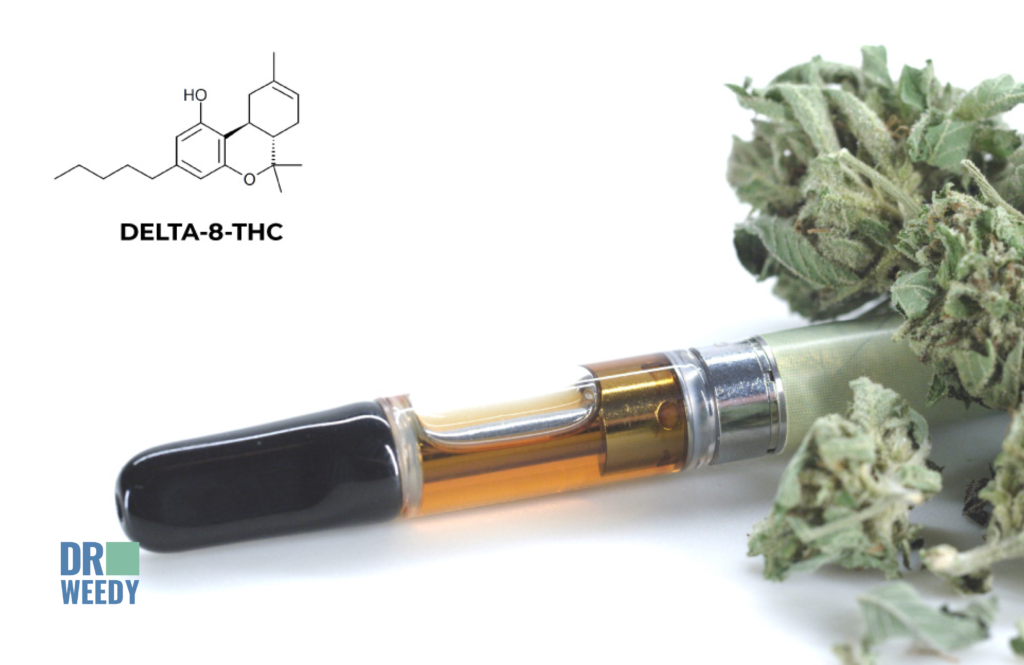
What came to your mind the first time you heard delta-8 THC? This lesser-known cannabis compound is quickly becoming a popular alternative to traditional THC products. It is shrouded in intrigue with some saying it promises a milder, more approachable experience than the more popular Delta-9. But what exactly is delta-8, and what can you expect from this cannabinoid? Is it safe? This article will give you comprehensive details on the delta 8 THC, answer your questions, and share some unpopular facts about this type of cannabis. Don’t go anywhere! Keep reading to learn everything you need to know about this exciting compound.
What is Delta-8 THC?
Delta-8 THC, better known as delta-8 tetrahydrocannabinol, is a psychoactive compound found in cannabis plants. It is one of the many cannabinoids found in cannabis and an isomer of delta-9-THC, which is the primary psychoactive compound in marijuana. Delta-8 is naturally present in cannabis in small quantities, but it can be in large quantities through a process called isomerization.
Like delta-9, delta-8 THC also exists in indica and sativa strains both of which offer different effects to users.
What is the Difference Between Sativa and Indica Delta 8?
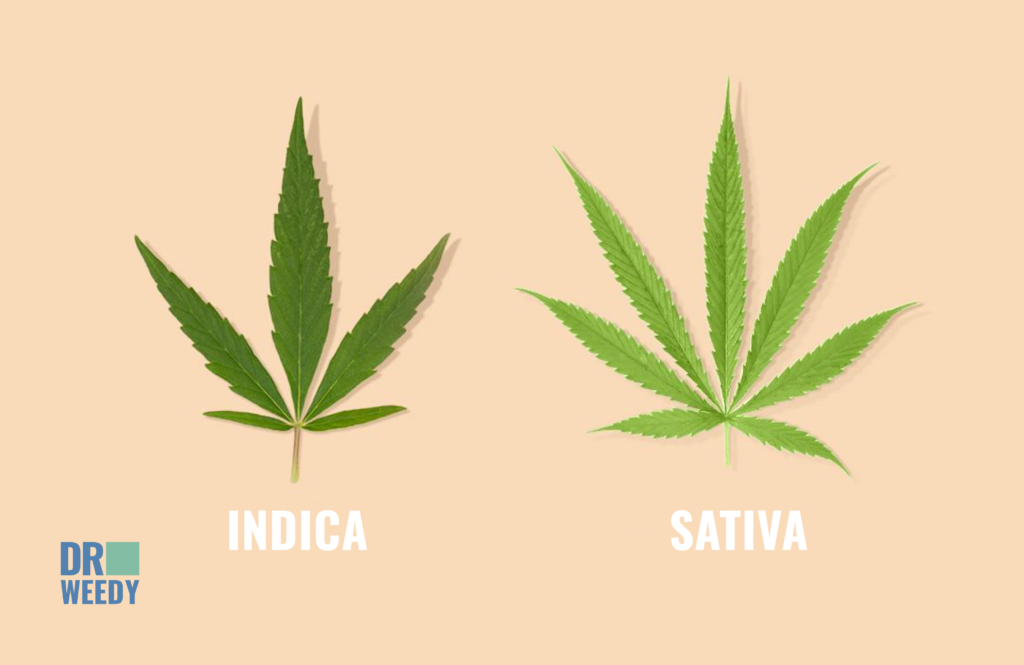
When it comes to delta-8 THC, variety isn’t just the spice of life, it’s the foundation of the experience! Indica and Sativa strains offer distinct effects, allowing you to tailor your delta-8 journey to your specific needs.
Indicas are known for their calming effects on both the mind and body, making them an excellent choice for reducing stress, anxiety, and insomnia. Sativas, on the other hand, enhance focus, mood, and energy levels, making them perfect for boosting creativity or tackling tasks.
The Difference Between Delta 8 and Other Cannabinoids
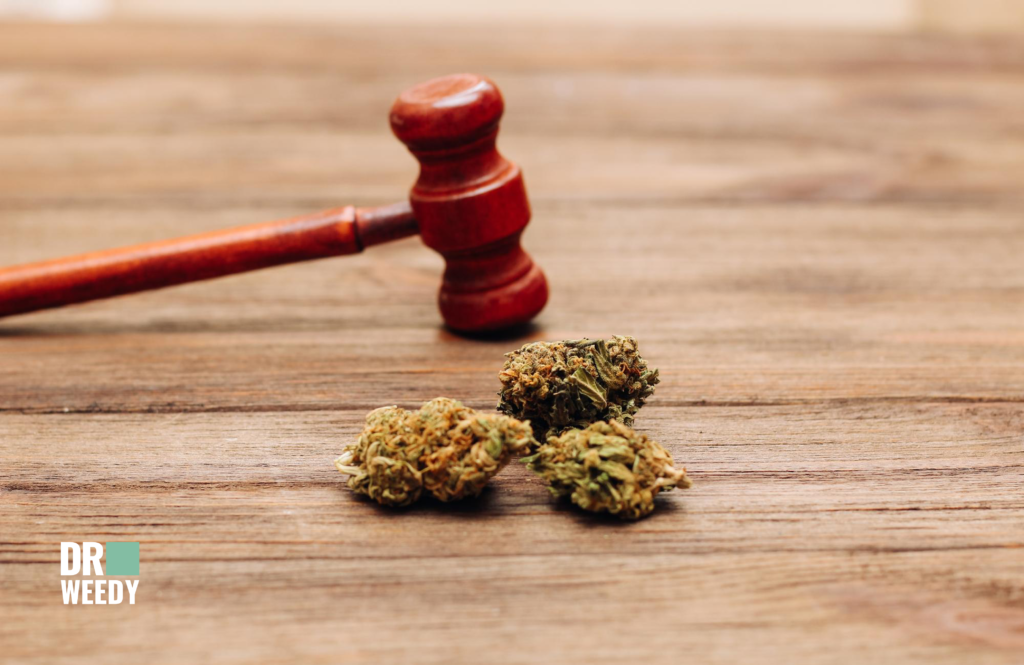
The Difference Between Delta 8 and Delta 9 THC
Delta-8 is quite similar to delta-9 in most ways except in structure. The main difference between delta 8 and delta 9 is their chemical structure. Delta 8 has a double bond on the eighth carbon chain, while delta 9 has the same double bond on the ninth carbon chain. Not a fan of chemistry? Well, this slight variation in structure impacts how the compounds interact with the body’s endocannabinoid system. As a result, of this structural difference, delta 8 exhibits a weaker binding affinity to the CB1 receptor, the primary psychoactive receptor in the brain, resulting in less psychoactive effects and a milder high compared to delta 9.
What is the Difference Between Delta 8 and CBD?
Delta-8-THC and CBD are both cannabinoids, naturally occurring compounds found in the cannabis plant. However, they have distinct effects. While delta-8-THC is psychoactive and produces a mild “high”, similar to the experience you get from delta-9-THC, CBD is non-psychoactive and does not produce a “high.” CBD is popular for its therapeutic benefits such as pain relief, anxiety reduction, and anti-inflammatory effects. See the table below for more details.
Table 1: Comparison of Delta-8 THC, Delta-9 THC, and CBD
|
Feature |
Delta 8- THC |
Delta 9 THC |
CBD |
|
Psychoactive Effect |
Mild |
Strong |
Non-psychoactive |
|
Legal Status |
Federally Legal (Farm Bill) |
Federally Legal (Farm Bill – <0.3% Delta-9 THC) |
Federally Legal |
|
Source |
Cannabis |
Cannabis |
Cannabis |
|
Structure |
Double bond on 8th carbon chain |
Double bond on 9th carbon chain |
No double bond |
Is Delta-8 Legal?
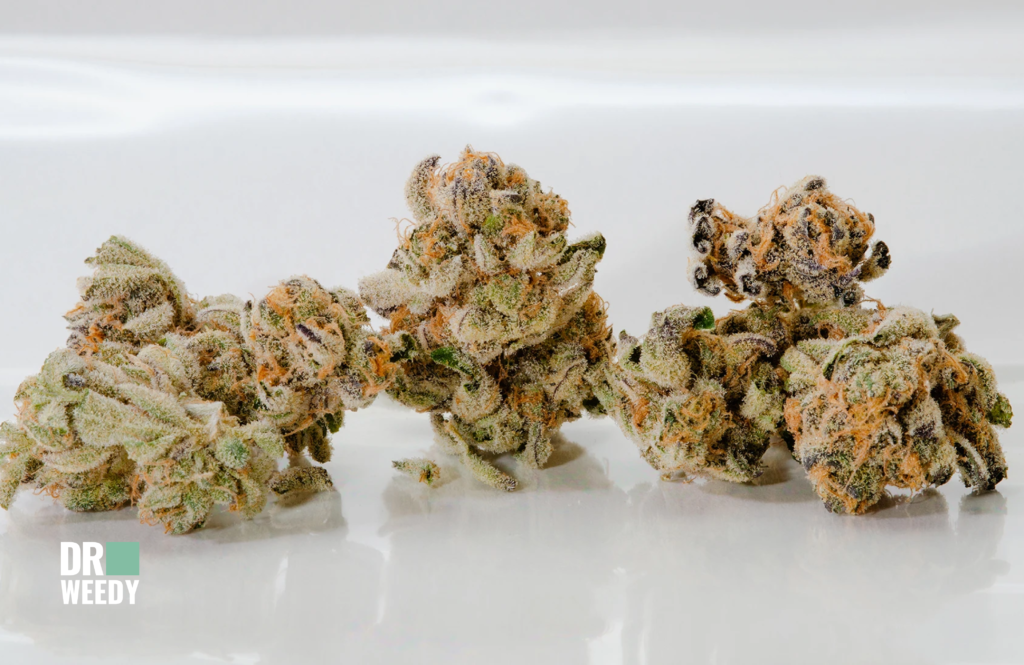
The legal status of delta-8 THC is a major factor behind its growing popularity. At the federal level in the United States, delta-8 THC is considered legal under the 2018 Farm Bill, also known as the Agricultural Improvement Act, which expired on September 30, 2023.
The Farm Bill legalized hemp-derived products, including delta-8 THC (an assumption since delta-8 occurs naturally in hemp), as long as they contain less than 0.3% delta-9 THC. While delta-8 THC occurs naturally in hemp plants, it is only found in trace amounts. Manufacturers, however, have developed methods to produce large quantities of delta-8 THC from hemp-derived CBD, in a bid to maintain its legal status.
While the Farm Bill Extension has been passed into law, we expect the forthcoming 2024 Farm Bill to provide clarity about the status of delta 8 THC in the eyes of federal law.
So is Delta 8 Synthetic?
Not exactly, let me explain. You already know that delta-8 tetrahydrocannabinol (THC) is naturally found in cannabis, but the quantity present is extremely small, rendering it impractical for commercial extraction. To meet the growing demand for delta-8 THC products, manufacturers have turned to a process called isomerization to convert CBD into delta-8 THC.
Isomerization involves manipulating the molecular structure of CBD to rearrange its atoms, resulting in the formation of delta-8 THC. This is how most of the delta-8 available on the market is produced.
How Safe is Delta-8 THC?
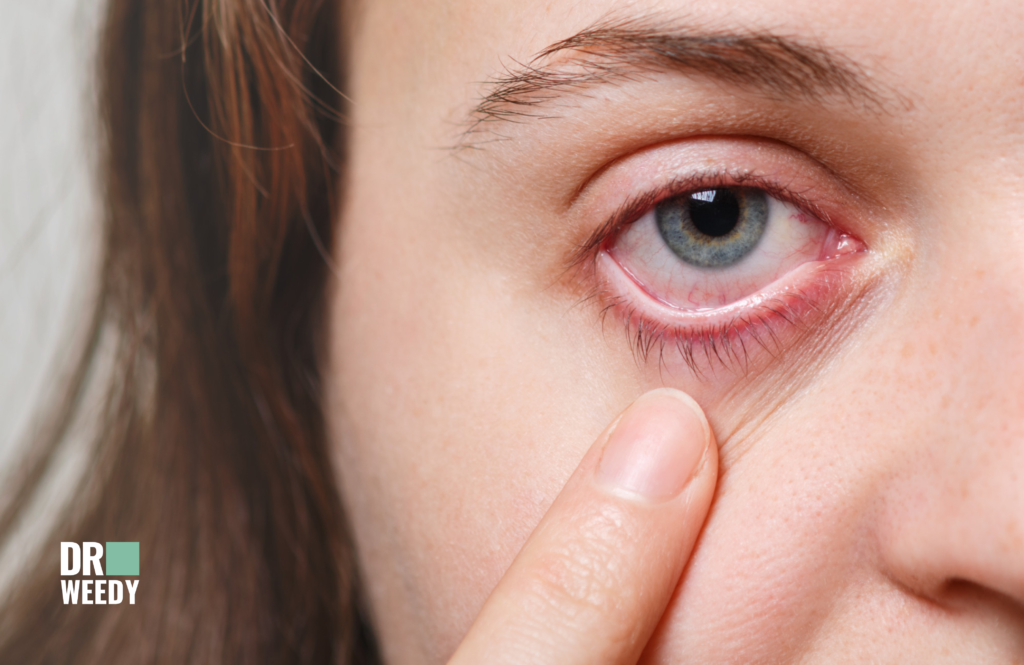
Delta-8 THC, often promoted as a milder alternative to its more potent counterpart, delta-9 THC, has recently raised safety concerns among health authorities. While it’s generally perceived as safe, the FDA has yet to grant its approval, urging caution amidst a growing number of reported adverse events. From December 2020 to February 2022, the FDA documented 104 adverse reactions linked to delta-8 THC consumption, while national poison control centers reported 2,362 exposure cases.
These concerns stem from the lack of federal regulations surrounding its production, leaving potential users vulnerable to inconsistencies in quality and impurities. While delta-8 THC may be milder than delta-9 THC, it can still induce a psychoactive effect and may lead to undesirable or even dangerous side effects. Therefore, approaching delta-8 THC with caution and prudence is essential until further research and regulations are in place.
Risks and Side Effects of Delta-8 THC
While delta-8 THC is generally considered safe, it can still cause side effects such as dry mouth, red eyes, dizziness, cognitive distortions, memory loss, and paranoia. These side effects are usually mild and go away on their own, but in rare cases, they can be more severe. It’s important to stop using delta-8 THC if you experience any adverse reactions.
Table 2: Common Side Effects of Delta-8 THC
|
Side Effect |
Frequency |
Severity Level |
|
Dry Mouth |
Common |
Mild |
|
Red Eyes |
Common |
Mild |
|
Dizziness |
Occasional |
Moderate |
|
Cognitive Distortions |
Occasional |
Moderate |
|
Memory Loss |
Rare |
Severe (In rare cases) |
|
Paranoia |
Rare |
Severe (In rare cases) |
Health Benefits of Delta 8
Delta-8 THC has been gaining popularity among cannabis users due to its potential benefits. Users have reported experiencing a lot of relaxation, euphoria, and pain relief after consuming delta-8 THC. It’s no wonder that more and more people are turning to delta-8 THC to treat a range of health and medical conditions, primarily anxiety or panic attacks, stress, depression or bipolar disorder, and chronic pain. With its milder psychoactive effects compared to delta-9 THC, delta-8 THC offers a promising alternative for those seeking relief without the intense high. If you’re looking for a natural way to manage your symptoms, delta-8 THC may be worth considering.
Studies have also found delta 8 to be beneficial in increasing food appetite and enhancing the production of acetylcholine.
How to Consume Delta-8 THC
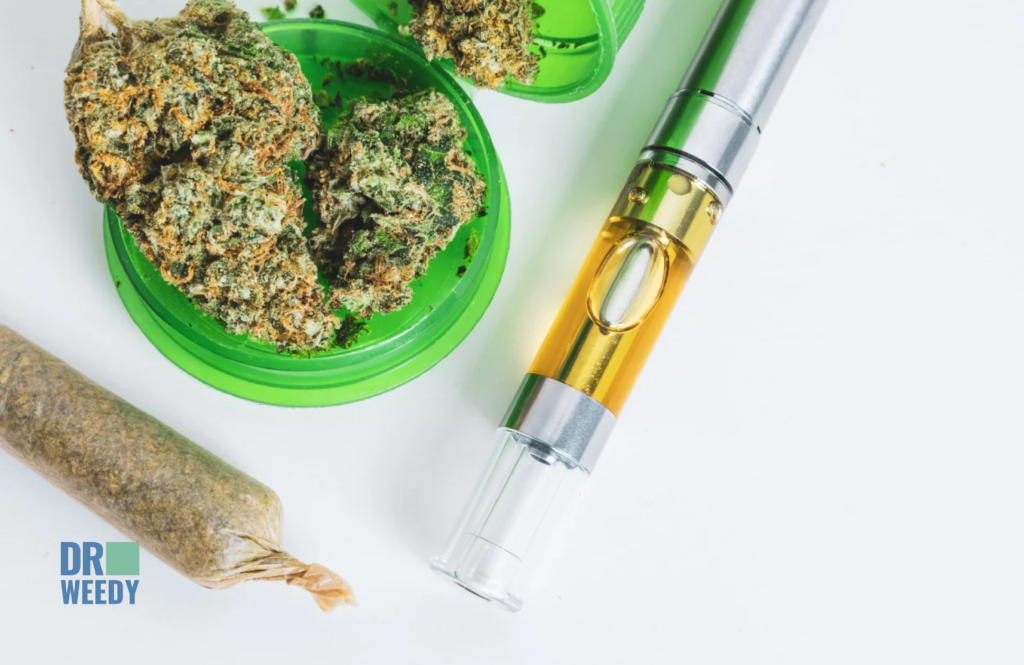
Delta-8 THC offers a variety of consumption methods, allowing for flexibility and customization based on individual preferences. Here are some common ways people consume delta-8 THC:
- Vaping
Vaping is one of the quickest and most popular methods of consuming delta-8 THC. Vaporizing delta-8 allows for fast absorption into the bloodstream, resulting in a rapid onset of effects.
- Edibles
There are several delta-8 THC-infused edible products, such as gummies, chocolates, or baked goods. Edibles provide a discreet and convenient option, with effects taking longer to kick in compared to vaping but lasting for a more extended period.
- Tinctures and Oils
Tinctures and oils allow for relatively quick absorption through the mucous membranes in the mouth, providing a faster onset compared to edibles.
- Capsules
Delta-8 THC capsules offer a precise and measured dosage, making them a convenient option for users who prefer a controlled intake. Effects typically take longer to manifest compared to vaping but are longer-lasting.
- Smoking
Similar to traditional cannabis, delta-8 THC is also smoked in the form of flowers or pre-rolls.
Frequently Asked Questions
How long does delta-8 keep you high?
It varies depending on quantity and individual factors, but typically 2-8 hours.
What is live resin delta-8?
Concentrated delta-8 extracted from fresh, frozen cannabis, offering a potent and flavorful experience.
Is delta-8 addictive?
Research is limited, but the potential for dependence exists. Use responsibly and monitor your intake.
How much THC is in delta-8?
Legally, less than 0.3% THC.
Is delta-8 legal in California?
Yes, under the 2018 Farm Bill, as long as it contains less than 0.3% delta-9 THC.
Is delta-8 legal in Texas?
Legality is unclear. State laws haven’t explicitly addressed delta-8, but possession of hemp-derived products with less than 0.3% delta-9 THC is generally allowed.
Final Thoughts
Delta-8 THC is at a crossroads. Its legal status, safety concerns, and potential benefits create a complex landscape. Nevertheless, it is a promising alternative to traditional THC products, offering a milder, more approachable experience. Since it is still relatively new and unregulated, it’s important to approach delta-8 THC with caution until further research and regulations are in place. If you intend to use delta 8 for medicinal purposes, please seek the advice of your doctor to avoid unwanted side effects.
SOURCES:
- Kruger DJ, Kruger JS. Consumer Experiences with Delta-8-THC: Medical Use, Pharmaceutical Substitution, and Comparisons with Delta-9-THC. Cannabis Cannabinoid Res. 2023 Feb;8(1):166-173. doi: 10.1089/can.2021.0124. Epub 2021 Nov 19. PMID: 34797727.
- Kruger JS, Kruger DJ. Delta-8-THC: Delta-9-THC’s nicer younger sibling? J Cannabis Res. 2022 Jan 4;4(1):4. doi: 10.1186/s42238-021-00115-8. PMID: 34980292; PMCID: PMC8725316.
- Miller CR, Burk BG, Fargason RE, Birur B. Delta-8-THC association with psychosis: A case report with literature review. Front Psychiatry. 2023 Feb 20;14:1103123. doi: 10.3389/fpsyt.2023.1103123. PMID: 36890985; PMCID: PMC9986552.
- National Center for Biotechnology Information (2023). PubChem Compound Summary for CID 98523, delta9-Tetrahydrocannabinolic acid. Retrieved December 5, 2023 from https://pubchem.ncbi.nlm.nih.gov/compound/delta9-Tetrahydrocannabinolic-acid.
- Ray CL, Bylo MP, Pescaglia J, Gawenis JA, Greenlief CM. Delta-8 Tetrahydrocannabinol Product Impurities. Molecules. 2022 Oct 15;27(20):6924. doi: 10.3390/molecules27206924. PMID: 36296514; PMCID: PMC9608670.
- Revuelta AV, Cheney DL, Costa E, Lander N, Mechoulam R. Reduction of hippocampal acetylcholine turnover in rats treated with (-)-delta 8-tetrahydrocannabinol and its 1′,2′-dimethyl-heptyl homolog. Brain Res. 1980 Aug 18;195(2):445-52. doi: 10.1016/0006-8993(80)90078-5. PMID: 6249445.























